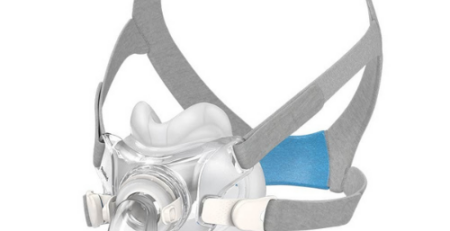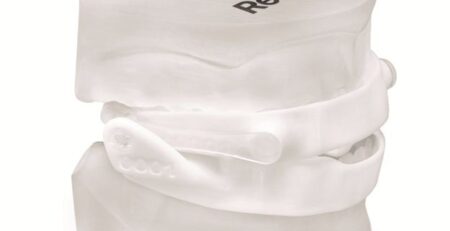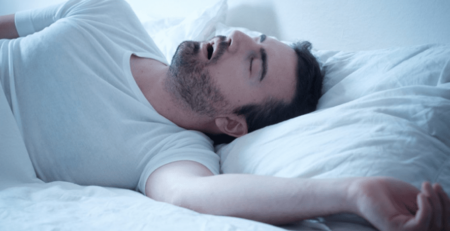Sleep apnea for the newly diagnosed: everything you need to know
If you have recently been diagnosed with sleep apnea, you may be feeling overwhelmed or worried about what this condition means for your health and quality of life. Sleep apnea is a common but serious condition in which breathing is repeatedly interrupted during sleep, which can have a significant impact on your overall well-being if not properly treated. Fortunately, there are effective treatments and measures you can take to improve your sleep and reduce the associated risks.
What is sleep apnea
Sleep apnea is a condition in which breathing stops and starts repeatedly during sleep. These pauses can last a few seconds or more than a minute and, in severe cases, can occur hundreds of times in a single night. This interrupts the sleep cycle and causes a reduction in oxygen in the blood.
There are three main types of sleep apnea:
- Obstructive sleep apnea (OSA): this is the most common type and occurs when the throat muscles relax excessively, blocking the airways.
- Central sleep apnea (CSA): occurs when the brain does not send adequate signals to the muscles that control breathing.
- Complex sleep apnea: a combination of the two previous types.
Common symptoms of sleep apnea
The diagnosis of sleep apnea often arises because common symptoms are noticed by patients or their bed partners. These symptoms can include
- Loud snoring: Although not all people who snore have sleep apnea, loud and persistent snoring is one of the most common signs of the disease.
- Breathing pauses: People with sleep apnea may experience pauses in breathing, often followed by gasping or choking when they breathe again.
- Daytime sleepiness: Due to the constant interruption of sleep, people with sleep apnea often feel tired or sleepy during the day, even after an apparently full night’s rest.
- Morning headaches: Waking up with frequent headaches can be a sign of sleep apnea, as a lack of oxygen can affect the brain.
- Difficulty concentrating and mood swings: Sleep apnea affects the quality of rest, which can lead to concentration problems, irritability and mood swings.
Why is it important to treat sleep apnea?
Although sleep apnea may seem like a minor problem of snoring or tiredness, it is actually a serious condition that can have serious long-term effects on your health. Not treating sleep apnea can increase the risk of:
- Hypertension: Sleep apnea is closely related to high blood pressure, since the lack of oxygen and interruptions in breathing increase the pressure on the cardiovascular system.
- Heart disease: People with untreated sleep apnea have an increased risk of heart disease, including arrhythmias, heart attacks and strokes.
- Type 2 diabetes: Sleep apnea can also increase the risk of developing diabetes, as it interferes with metabolism and blood sugar regulation.
- Concentration and memory problems: Lack of restful sleep directly affects brain function, which can lead to memory and attention difficulties.
Treatment options for sleep apnea
Fortunately, there are several effective treatment options for sleep apnea that can significantly improve your quality of life and reduce health risks. Below, we explore the most common treatments:
- Use of CPAP (continuous positive airway pressure)
The most common treatment for sleep apnea is the use of a CPAP machine. This device delivers a constant flow of air through a mask that you wear while you sleep, which keeps your airways open and prevents interruptions in breathing.
- Advantages of CPAP: Rapidly improves sleep quality, reduces snoring and relieves associated symptoms such as daytime sleepiness and headaches.
- Disadvantages: Some people may find the mask uncomfortable to wear, especially at first, but most adapt over time.
2. Weight loss
Obesity is one of the main risk factors for sleep apnea, especially obstructive sleep apnea. The accumulation of fat around the neck and airways can block the flow of air during sleep. Losing weight can reduce or even eliminate the symptoms of sleep apnea in some cases.
3. Lifestyle changes
Adopting certain lifestyle changes can be an effective way of improving the symptoms of sleep apnea:
- Sleeping on your side: Sleeping on your back can make sleep apnea worse, as gravity can cause the tissues in your throat to block your airways. Sleeping on your side can help keep your airways open.
- Avoid alcohol and sedatives: Alcohol and sedatives relax the throat muscles, which can aggravate sleep apnea. Avoiding these products, especially before bedtime, can reduce symptoms.
4. Oral devices
In some cases, oral devices can be an alternative to CPAP. These devices reposition the jaw and tongue to keep the airway open during sleep. They are less invasive than CPAP devices, although they may not be as effective in severe cases of sleep apnea.
5. Surgery
In the most severe cases, surgery may be required to treat sleep apnea. Surgical options include uvulopalatopharyngoplasty (removal of excess throat tissue) or maxillofacial surgery to correct the structural problems that cause apnea.
Tips for improving your quality of life
As well as following the treatment recommended by your doctor, you can adopt some habits to improve your sleep and general well-being:
- Maintain a regular sleep schedule: Go to bed and get up at the same time every day to promote a healthy sleep cycle.
- Create an ideal sleep environment: Make sure your bedroom is dark, quiet and cool to promote restful sleep.
- Exercise regularly: Regular exercise can help reduce the symptoms of sleep apnea, improving cardiovascular health and helping you lose weight.
Sleep apnea is a serious condition that can affect your health in many ways, but with the right diagnosis and the right treatment, you can significantly improve your quality of life. Whether you’re using a CPAP machine, making lifestyle changes or considering other treatment options, it’s essential to follow your doctor’s recommendations and take steps to manage this sleep disorder. By doing so, you’ll not only enjoy more restful nights, but also better overall health.
Terapiacpap
Latest posts by Terapiacpap (see all)
- Sleep apnea for the newly diagnosed: everything you need to know - 5 de March de 2025
- Restless legs syndrome, what is it and how to treat it? - 28 de February de 2025
- Consequences of not treating sleep apnea: health risks - 21 de February de 2025
- Exercises to strengthen breathing and reduce sleep apnea - 14 de February de 2025
- Tips for renewing your pillow and sleeping better, not just any pillow will do! - 28 de January de 2025














Leave a Reply